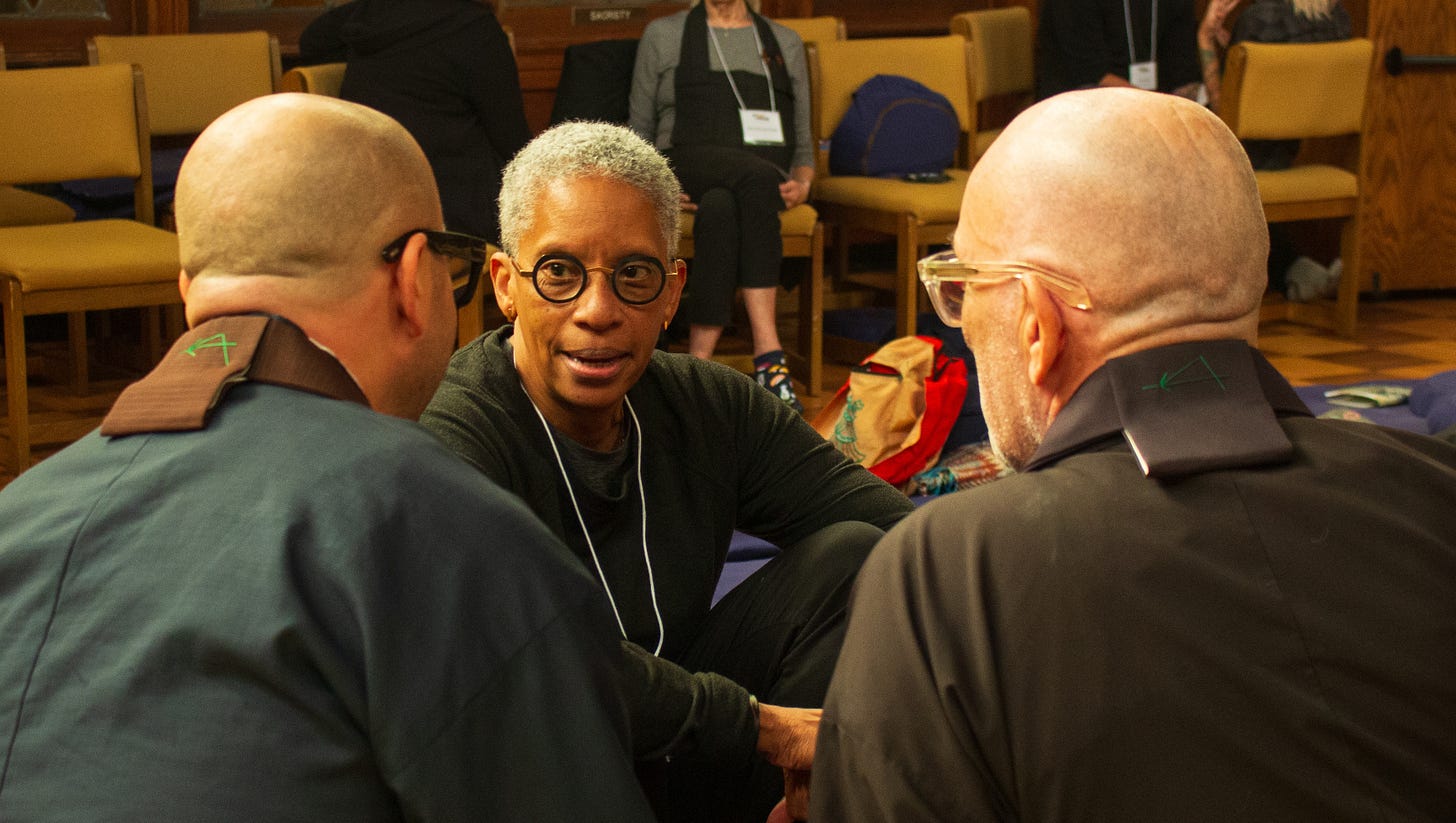Playing fast and loose with the truth?
The practice of right speech begins not with perfecting what we say, but with examining why we feel compelled to say it.
Do you play fast and loose with the truth? Do you often speak of others’ errors and faults? Pay close attention to how you use words. Do you like or share posts on social media that you yourself do not know to be truly true from your first-hand experience?
It can be surprisingly easy to confuse rumor-spreading with truth-telling.
Whenever we speak our own interpretations and judgments as the truth, we begin to distort, perhaps even break, the connections we share with others and the world.
This reminds me of a story I’d like to share.
There was an old Hasidic rabbi who found out that someone in his community was spreading rumors. So, the rabbi brought the guy to his house. Once the man arrived, the rabbi asked him to fetch him a pillow from upstairs.
While the man was upstairs, the rabbi opened all the doors and windows and took a huge steak knife from the kitchen drawer.
By the time the man returned with the pillow, it was cold in the house and wind blew in through all the open windows. The rabbi stood in the middle of the room with knife in hand.
The man, unsurprisingly, felt pretty uneasy.
“Give me the pillow,” the rabbi said breaking the silence.
The man handed it to him, and the rabbi cut the feather pillow in half.
The wind lifted the feathers. They blew about everywhere—out the windows, through the front and back door, and all over the house.
The gossiping man stood dumbstruck.
“This is what you do when you spread rumors,” said the rabbi. “The truth of the pillow is no longer there. What you have now is merely feathers. You’ve broken something.”
I recently had tea with a teacher. I had heard from many people that this teacher was spreading rumors about another teacher. I did not like this and decided, as a good spiritual friend, that it was my responsibility to tell him what I thought he was doing was incorrect.
So we met, and I told him that, as someone who cared about him, I wished he wouldn’t talk shit about this teacher.
His response was interesting. He said, “I feel that it’s my responsibility to continue speaking about this, because I have to tell the truth.”
“How do you know what you’re saying is really true?” I asked.
He responded, “I don’t actually know it is true, but I have heard it as truth.”
“Can’t we take the high road here and stay with the precepts?” I responded.
“You have your way, and I have mine,” he said.
With that the conversation soon ended and we parted ways. After the meeting, he unfriended me on Facebook. I am not so sure I convinced him.
I do, however, aspire to inspire you.
It is surprisingly easy to confuse truth-telling with mere gossip.
Speaking what is true is a place of practice.
This teaching I love from Eihei Dogen Zenji comes to mind: “Students, when you want to say something, think about it three times before you say it. Speak only if your words will benefit yourselves and others. Do not speak if it brings no benefit.”
We must think about our words and remember that they have an impact—on ourselves, on others, and the world. We ought to cultivate an understanding of what we know firsthand to be true and what we only think might be true. We should be able to distinguish truth from something we heard secondhand or something that is merely a hunch or what we merely wish to be true. To steer clear of these pitfalls, we can practice moving through life with discernment—with a guiding filter as Dogen describes.
Let’s practice together.
When I feel compelled to speak my mind, I find that it is helpful to investigate whether I know—for sure and from firsthand experience—that what I’m about to say is really true before I say it. I ask myself: Am I communicating something from my own experience, or am I repeating something I was told?
Reflect on how you use words. When you speak with family members or co-workers, when you text friends or share posts on social media, do you pause and consider the truth of what you are communicating? Try this pause. When we do, we might come to see that a lot of what we assume to be true really isn’t. Rather than truth-telling, we are actually propagating rumors. When you ask yourself this question, you give yourself an opportunity to course correct. I encourage you to practice moving through life in this way. Pay close attention to how you use words. I am sure you will soon see the difference that this makes.
Let’s have a dialogue.
I’m curious.
How have you experienced the impact of words—positive or negative? What supports your efforts to speak truthfully and maintain the connections between one another and the world around us?
Please share your experiences in the comments below. Our stories can certainly help us all to walk this path with clarity and compassion.
May you always strive to use words that honor truth and respect the intimate connections between all things.
Koshin.







“I don’t actually know it is true, but I have heard it as truth.” Wow. Your friend spoke volumes right there in that one line, even if they didn't realise it. There is a big potential difference between one and the other! It reminds me of the first 'rule' in Don Miguel Ruiz's 'The Four Agreements', which is 'Be impeccable with your word'. So simple in theory, but how often do we manage to stick to it? Thank you for sharing :)
Another Rabbi and pillow story take…..
I was a coach for a run group of girls at my school as part of a program focused on well being and community.
My favorite activity….and one some of them remember years later….
We took toothpaste and and asked one girl to squeeze the tube, making some of the toothpaste come out. Then we passed it around with the instruction to get it back into the tube….which of course got all over everyone and was a sticky mess…impossible to put back.
That’s gossip!
Love that lesson
A bow a hug a smile
Dena. :)